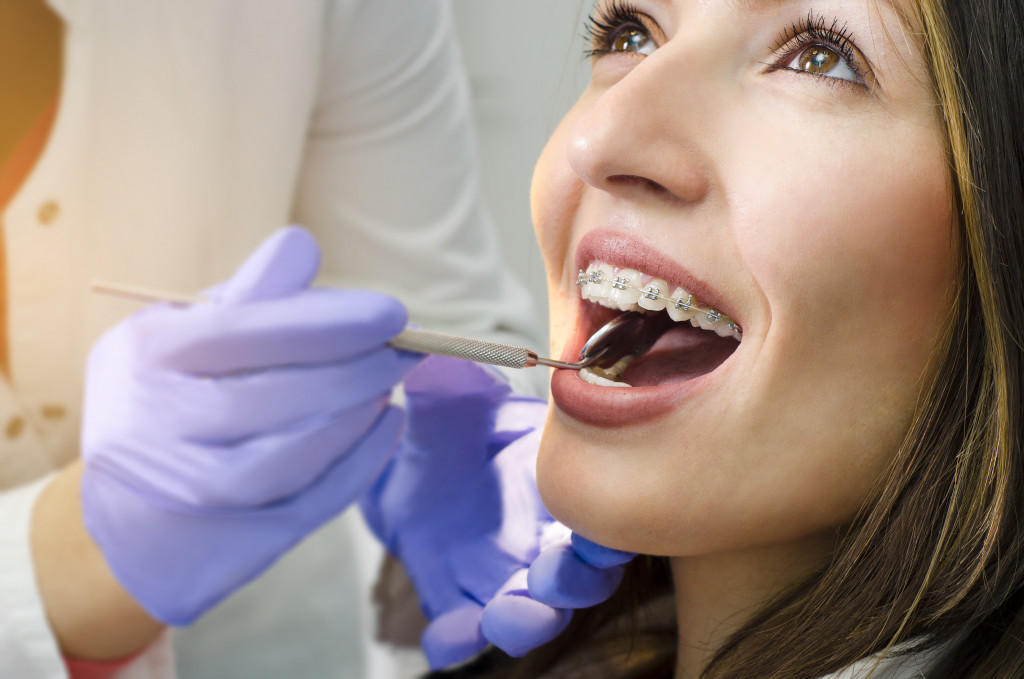- Daily habits like brushing twice daily, flossing once daily, using mouthwash, and eating healthy foods are essential for maintaining dental health.
- Regular visits to the dentist are essential for keeping teeth and gums in optimal condition and detecting any early signs of problems.
- Smoking or using tobacco products harms oral health and can lead to gum disease, cavities, and even oral cancer.
- Dental health is vital for overall health and well-being, so it’s important to prioritize taking proper care of your teeth and gums.
Dental health is essential to overall bodily health, yet it is often overlooked. Poor dental hygiene and lack of regular visits to a dentist can lead to serious oral and systemic diseases. Despite this, many people fail to prioritize dental health, risking gum disease, cavities, heart disease, stroke, and other medical conditions linked to poor oral care.
Studies show that more than 47% of Americans do not visit the dentist regularly. According to a survey by DentaVox, only 17% percent of adults brush their teeth twice a day, while nearly 1 in 4 adults stated they never floss. These statistics are alarming, given the long-term effects that unchecked dental problems could have on one’s general health.
Fortunately, there are plenty of ways to maintain dental health. Here are a few to consider doing regularly to ensure you have healthy and strong teeth.
Dental Hygiene Habits

Dental hygiene is often neglected in health care, yet it is essential for overall well-being. Here are some daily habits to ensure you’re taking proper care of your teeth and gums:
Brushing
Good dental hygiene starts with basic brushing. Brushing twice daily is essential for removing plaque, food particles, and bacteria from the teeth and freshening your breath. It’s necessary to use a soft-bristled brush and fluoride toothpaste to clean all surfaces of the teeth thoroughly. Additionally, brushing should be done gently in circular motions instead of scrubbing or sawing back and forth.
Flossing
Flossing at least once a day is also essential for cleaning between the teeth, where toothbrush bristles can’t reach. This helps remove food particles trapped in tight crevices, preventing gum disease, cavities, and decay in hard-to-reach areas of the mouth. Waxed floss is recommended for easy maneuverability between teeth, but un-waxed versions also work.
Using Mouthwash
Mouthwash is a helpful tool for reaching areas that even brushing and flossing can’t reach. Rinsing with an antiseptic mouthwash kills germs that cause bad breath while reducing plaque levels on teeth and gums. Alcohol-free mouthwashes are advised as they don’t irritate gums or leave behind a burning sensation as alcohol-based rinses do. Certain types of mouthwashes are also available to address specific conditions, such as dry mouth or sensitive teeth, so it’s best to discuss your needs with your dentist or hygienist before using any type of rinse.
Eating Healthy Foods
In addition to daily hygiene habits, eating healthy foods is vital in maintaining good dental health. Eating crunchy fruits and vegetables like apples, carrots, and broccoli help to scrub away plaque from teeth while increasing saliva production, which helps flush out excess acids responsible for tooth decay. Calcium-rich foods such as yogurt, cheese, and almonds protect the enamel from weakening due to acidic foods or drinks. Reducing sugary snacks and beverages will also help minimize cavity risks since sugar feeds bacteria that cause cavities in the mouth over time if left untreated.
Regular Dental Visits

Regular dental visits are essential for maintaining optimal oral health. Professional cleanings can help remove plaque and tartar build-up that has built up on teeth over time, while checkups can detect any early signs of problems such as cavities or gum disease. Dentists will also screen for oral cancer during a routine exam and advise patients on proper oral hygiene practices to ensure good overall dental health.
For those who need more advanced treatments, such as root canal therapy or dental implants, regular visits to the dentist are even more critical. Root canals involve removing damaged tissue from the tooth’s root and replacing it with a filling material. Dental implant procedures involve surgically placing an artificial tooth in the jawbone to replace missing teeth caused by injury or disease. In either case, regular visits with a dentist are essential for monitoring the progress of these treatments and ensuring that no further damage is occurring.
Smoking Cessation
One of the worst things a person can do for oral health is to smoke or use tobacco products. Smoking causes bad breath, stained teeth, and an increased risk of gum disease and may cause oral cancer. Quitting smoking is one of the best things you can do for your overall health and dental hygiene.
If smoking is challenging to quit, alternatives such as nicotine replacement therapy or vaping are available. These options can help reduce cravings while keeping teeth and gums healthier.
Final Thoughts
By following these tips, you can take control of your oral health and ensure your smile is healthy and strong for years to come. Taking the time to brush twice daily, floss once daily, visit the dentist regularly, eat healthy foods, and avoid tobacco products will go a long way toward maintaining good dental health.


